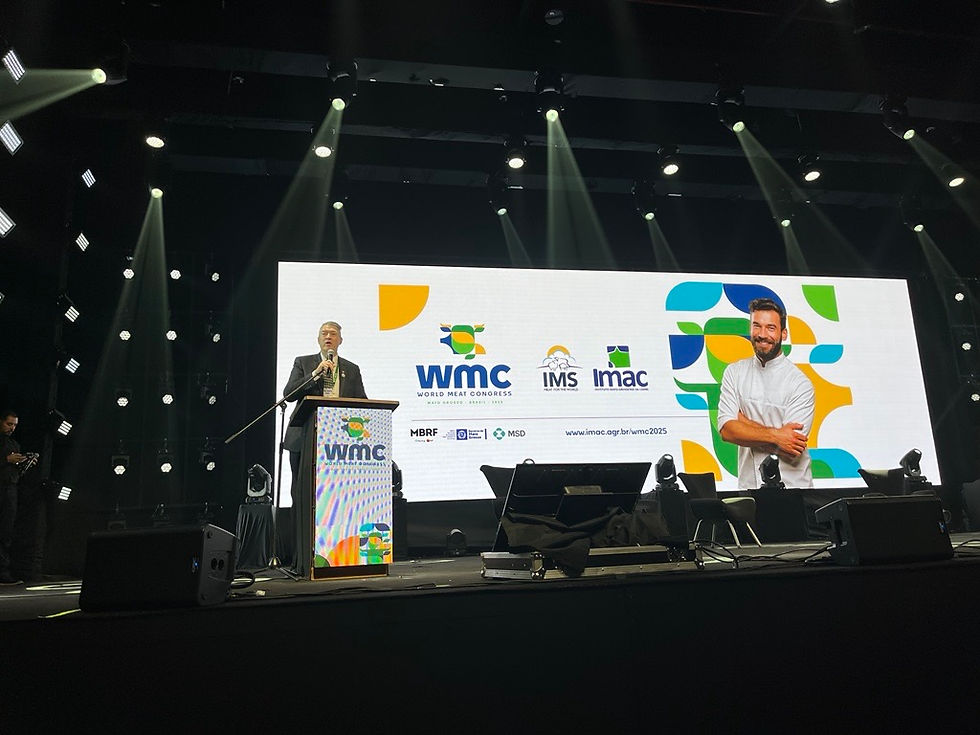World Meat Congress 2025: Mato Grosso, Brazil, Becomes Global Hub for Meat Industry Dialogue
- CCA

- Nov 3, 2025
- 2 min read
For the first time in its history, Brazil hosted the World Meat Congress (WMC), a prestigious biennial event organized by the International Meat Secretariat (IMS). Held in Cuiabá, the capital of Mato Grosso, the congress brought together more than 600 delegates from more than 20 countries, including producers, exporters, researchers, policymakers, and industry leaders. The Canadian delegation was composed of retired CCA staff member and IMS Vice-President John Masswohl, CCA staff Gabriela Guigou, PSE staff Amie Peck, Canadian Cattle Young Leaders (CYL) Emily Bromley, CYL graduate and Manitoba beef producer Laura Plett and Eric Bienvenue (Canada Beef).

Mato Grosso was a strategic choice for the event. As Brazil’s largest beef-producing state, it boasts a herd of more than 32.83 million cattle and a robust presence in poultry and pork production. In 2024 alone, the state exported more than $2.7 billion in animal protein to 65 countries.

The 2025 Congress focused on the evolving landscape of the global meat industry, under the theme “A New Era of Meat”. Discussions revolved around:
Food geopolitics: Experts from the EU, US, China, and Brazil debated the impact of global trade tensions on meat markets.
Challenges for animal protein: Presentations by Rupert Claxton (GIRA) and Dr. Thanawat Tiensin (FAO) addressed production forecasts and sustainable livestock transformation.
Sustainable meat production: Thought leaders like Dr. Ernesto Viglizzo, Prof. Michael Lee, and Gustavo Castro (EMBRAPA) explored environmental benefits and industry readiness for COP30, also to be held in Brazil later this year.
Red meat and human health: Experts, including Prof. Frederic LeRoy, Dr. Andrew Mente (McMaster University), and Dr. Carrie Ruxton, tackled the health implications of meat consumption and responded to the updated EAT-Lancet recommendations.
Animal welfare and productivity: Experts from MSD Animal Health, the EU Commission, and Mato Grosso University addressed the link between welfare and sustainability.
Communication in the meat sector: Strategies to engage younger generations and counter misinformation were debated, with a specific focus on cell-cultured meat.






Comments